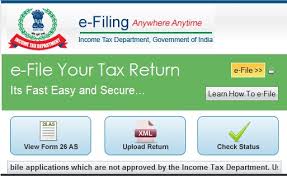
The E-assessment Scheme 2019 aims to eliminate human interface, reduce corruption and bring in transparency.
The idea of faceless E-assessment was mooted in the Budget 2018 by the late Finance Minister, Arun Jaitley, who announced the proposal to introduce the new assessment scheme to replace the old assessment system of manual scrutiny and face-to-face interaction with tax authorities.
The new scheme, called the ‘E-assessment Scheme, 2019 (Scheme), was notified by CBDT on 12 September, 2019. It will be an online system, which will use artificial intelligence, machine learning and technology tools to randomly and automatically allocate cases for assessment within the Income Tax Department. It aims to eliminate human interface, reduce corruption and bring in transparency.
Salient features of the Scheme:
The Scheme will have dedicated E-assessment centres such as the National E-assessment Centre, Regional E-assessment Centre, assessment units, verification units, technical units and reviewer units with each centre and unit having a clearly defined role and process to follow.
# National E-assessment Centre (NEC): NEC will be a single point of contact for the taxpayer as well as for all units conducting assessment. NEC will interact with the taxpayer to obtain evidence, issue notices, receive information, issue draft assessment order, raise demand, etc, and also interact with all units for smooth conduct and completion of assessment proceedings. All communication between the NEC, the taxpayer and various units would be done online and would be digitally signed.
# Regional e-assessment Centre (REC): REC will ensure smooth conduct of E-assessment under the region of a Principal Chief Commissioner.
# Assessment units (AU): AU will perform the function of scrutinising tax returns, analysing submissions made and evidence submitted by the assessee and make requests, if any verification or technical assistance is required.
# Verification units (VU): VU will perform the function of making enquiry, cross verification, examination of records or witnesses and recording statements, as may be required for verification.
# Technical units (TU): TU will give advice on legal, accounting, forensic, information technology, valuation, transfer pricing, data analytics, management or other technical matter required for conducting assessments.
# Review units (RU): RU will review draft assessment order (DAO) to check if all material evidence, relevant points of fact and law, relevant tax case laws have been included in the DAO. It will also ensure the arithmetical accuracy of modifications proposed and perform other functions as may be required for review.
Procedure for assessment:
NEC will issue notice under section 143(2) online by uploading the digitally signed copy on the registered income tax account or by sending notice to the assessee’s registered email address or uploading the copy on a mobile app. A real time alert will be sent through SMS or the mobile app informing the same to the assessee
The assessee is required to respond within 15 days of receipt of notice.
On the issue of a notice, NEC will allocate the case to any AU through an automated allocation system. The AU will then identify issues, seek clarifications from the assessee and may request for verification or enquiry through VU or seek technical assistance through TU. Accordingly, NEC will initiate request to the respective units through an automated allocation system.
On receipt of all information, AU will prepare a DAO accepting the returned income or modifying the returned income or send the DAO to NEC for review. NEC will accordingly finalise the order or modify it or send the DAO to RU for review. Accordingly, it may send the DOA along with demand notice and penalty notice, where applicable, to the assessee or issue a showcause notice to the assessee.
In case of a showcause notice, the assessee will submit the response within the timeline specified in the notice. Considering the response, the NEC may either finalise the DAO or ask the AU to prepare a revised DAO.
On receipt of the revised DAO, the NEC will verify if any modification prejudicial to the taxpayer’s interest is proposed. Accordingly, the NEC will give an opportunity to the assessee to show cause as to why assessment should not be finalised as per the revised DAO; otherwise, NEC will finalise the assessment.
On completion of assessment, all records will be electronically transferred to the jurisdictional assessing officer (AO) only for imposition of penalty, recovery of demand, rectification of mistake, giving effect to appellate orders, submission of remand report or representation or for placing of any record before Commissioner (Appeals), Appellate Tribunal or Courts and for initiating prosecution or filing of complaint before the courts.
During the course of assessment proceedings, any unit may initiate penalty proceedings for non-compliance of any notice, direction or order and may recommend to the NEC to serve notice to the assessee.
Any appeal from the order of the NEC will be filed before the Commissioner (Appeals) having jurisdiction over the jurisdictional Assessing Officer.
During the assessment proceedings, no personal appearance will be allowed before the income-tax authority at NEC or any other units. In case personal hearing is required, to make oral submission or present the case, it shall be done only through video conferencing.
The E-assessment Scheme, 2019 is a welcome step towards standardisation and easing of assessment procedure. However, its success and ensuring that ease of doing business is achieved will depend on its careful implementation





